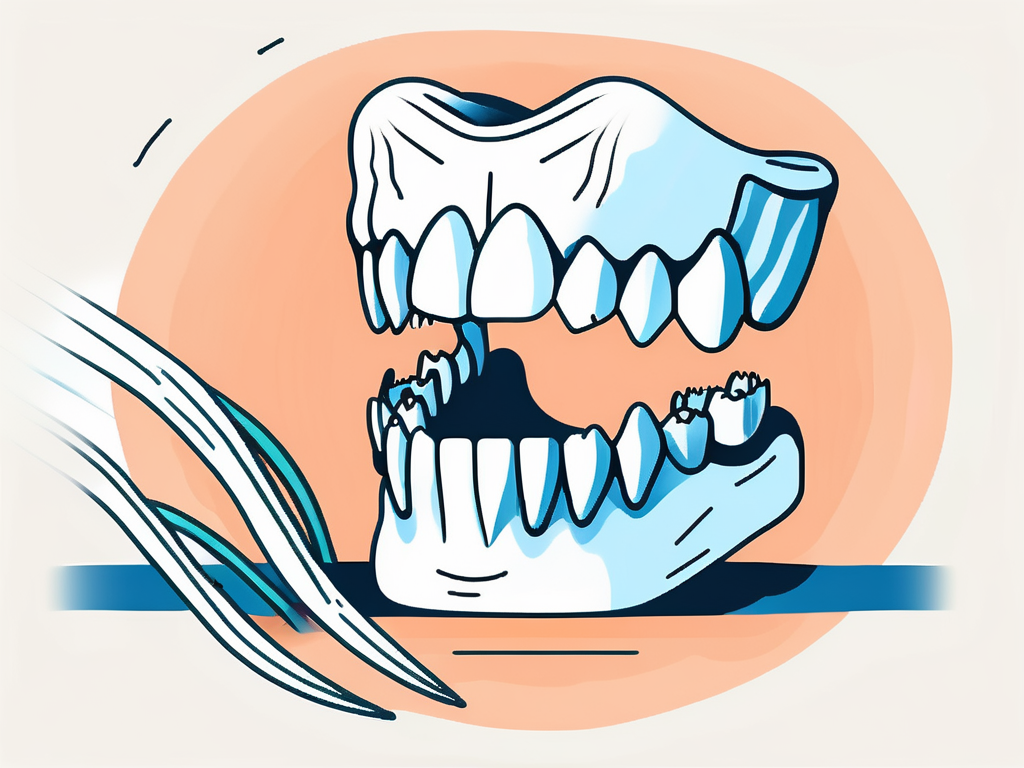Teeth clenching, also known as bruxism, can be a frustrating and potentially damaging habit. Many individuals suffer from teeth clenching due to stress and anxiety. The good news is that there are effective solutions available, such as using Remi guards, to help stop teeth clenching and protect your oral health.
Understanding Teeth Clenching
Teeth clenching occurs when you tightly grind your teeth together. It often happens during sleep, making it difficult to control or even be aware of the habit. The causes of teeth clenching can vary from person to person, but it is commonly associated with stress, anxiety, and even certain medical conditions.

Teeth clenching, also known as bruxism, is a common condition that affects many individuals worldwide. While occasional teeth clenching may not cause significant harm, chronic bruxism can lead to serious dental issues if left untreated. Understanding the triggers and effects of teeth clenching is crucial in managing this condition effectively.
Causes of Teeth Clenching
Stress and anxiety play a significant role in teeth clenching, as they can lead to increased muscle tension. Additionally, certain lifestyle factors, such as excessive caffeine or alcohol consumption, can contribute to teeth clenching. It is important to identify the underlying causes to address the problem effectively.
In some cases, teeth clenching may also be a result of misaligned teeth or an abnormal bite. These dental issues can put added strain on the jaw muscles, leading to involuntary clenching and grinding. Seeking professional dental evaluation can help determine if structural problems are contributing to your bruxism.
Effects of Teeth Clenching on Oral Health
Teeth clenching can have detrimental effects on your oral health. The constant grinding and clenching put excessive pressure on your teeth, which can result in tooth sensitivity, worn enamel, and even cracked teeth. It may also lead to jaw pain, headaches, and other discomforting symptoms. Seeking treatment for teeth clenching is essential to prevent long-term damage.
Furthermore, untreated bruxism can not only impact your dental health but also affect your overall well-being. Chronic teeth clenching has been linked to sleep disturbances, facial muscle pain, and even temporomandibular joint (TMJ) disorders. Addressing bruxism through relaxation techniques, dental appliances, or stress management strategies can help alleviate these associated complications.
Introduction to Remi
Remi is a revolutionary orthodontic treatment that has gained popularity for its ability to help teeth while also aiding in reducing symptoms of teeth clenching. This innovative approach to orthodontics offers a more comfortable and convenient alternative to traditional braces. Remi guards are not only virtually invisible but also removable, allowing for greater flexibility in your daily routine.
One of the key advantages of choosing Remi is the customized nature of the treatment. Each set of guards is tailor-made to fit your teeth snugly, ensuring optimal comfort and effectiveness. This personalized approach begins with a detailed 3D scan of your teeth, which serves as the basis for creating a treatment plan that addresses your specific orthodontic needs.
How Remi Works
Remi operates on a simple yet sophisticated principle. The treatment involves a series of clear guards that exert gentle pressure on your teeth, gradually guiding them into their ideal positions. These guards are designed to be worn for a specific period, after which they are replaced with a new set to continue the progression of tooth movement. This gradual adjustment process is not only effective but also minimizes discomfort compared to traditional braces.
Benefits of Using Remi
While the primary goal of Remi is to protect your teeth, Remi guards have been found to be particularly beneficial for individuals who struggle with teeth clenching or grinding. By providing a protective barrier between the teeth, the guards help reduce the impact of clenching, ultimately preserving the integrity of your teeth.
Furthermore, the removable nature of Remi guards promotes better oral hygiene practices. Unlike traditional braces that can make brushing and flossing challenging, Remi allows you to maintain your oral health routine with ease. The ability to remove the guards before meals also means you can enjoy your favorite foods without restrictions, making the treatment seamlessly integrate into your lifestyle.
The Role of Remi in Preventing Teeth Clenching
Remi guards can play a crucial role in preventing teeth clenching by providing a physical barrier between your upper and lower teeth. This helps to minimize the impact of clenching, protecting your teeth from excessive wear and potential damage.
Remi as a Protective Barrier
By wearing Remi guards, you create a cushioning effect that reduces the pressure and friction caused by teeth clenching. This can help prevent tooth sensitivity and protect the enamel from further erosion. The guards also act as a reminder to keep your mouth relaxed, reducing the likelihood of clenching.
Moreover, Remi guards are custom-made to fit your teeth comfortably, ensuring that they do not cause any additional strain on your jaw or teeth. This precise fit enhances their effectiveness in preventing teeth clenching and promoting overall oral health.
Adjusting to Remi: What to Expect
When starting Remi, it is common to experience some discomfort or pressure as your teeth adjust to the guards. This sensation is temporary and typically subsides within a few days. It is essential to wear the guards as instructed by your dentist to achieve the desired results and support teeth clenching prevention.
Additionally, as you progress through your Remi experience, you may notice improvements in your bite and overall dental health. The guards not only help in preventing teeth clenching but also contribute to a more harmonious relationship between your upper and lower teeth, enhancing your smile's aesthetics and functionality.
Additional Tips to Prevent Teeth Clenching
While using Remi guards can significantly help in stopping teeth clenching, incorporating additional preventive measures into your routine can further enhance the effectiveness of the treatment.

It is essential to understand that teeth clenching, also known as bruxism, can be triggered by various factors, including stress and anxiety. In addition to using Remi guards, adopting certain lifestyle changes and incorporating specific exercises into your daily routine can play a crucial role in preventing and managing teeth clenching.
Lifestyle Changes for Better Oral Health
Reducing stress levels through relaxation techniques, exercise, and improving sleep patterns can have a positive impact on teeth clenching. Engaging in activities such as yoga, meditation, or deep breathing exercises can help relax both your mind and body, reducing the likelihood of clenching your teeth subconsciously. Furthermore, maintaining a well-balanced diet rich in essential nutrients and staying hydrated can contribute to overall oral health and potentially decrease the urge to clench your jaw.
It is also important to be mindful of habits that may exacerbate teeth clenching, such as nail-biting or chewing on pens or pencils. By being aware of these habits and making a conscious effort to avoid them, you can further protect your teeth and jaw muscles from unnecessary strain.
Exercises to Relax Jaw Muscles
Regularly practicing jaw exercises and relaxation techniques can help relax the muscles involved in teeth clenching. Simple exercises, such as gently opening and closing your mouth or massaging the jaw area, can alleviate tension and reduce the frequency of clenching episodes. Additionally, applying a warm compress to the jaw area or taking a warm bath before bedtime can help loosen tight muscles and promote relaxation, potentially preventing nighttime teeth clenching.
Consulting with a dentist or healthcare provider can provide personalized recommendations and strategies to address teeth clenching based on your individual needs and circumstances. By taking a proactive approach and implementing these additional tips and techniques, you can effectively manage and reduce teeth clenching, improving your overall oral health and well-being.
Preparing for Your Remi Consultation
Prior to your consultation, it is helpful to gather information about your dental history, any previous orthodontic treatment, and your teeth clenching symptoms. This will assist the orthodontist in developing a personalized treatment plan that addresses your teeth clenching issues.
It's also beneficial to prepare a list of questions to ask during your consultation. Inquire about the duration of the treatment, the expected results, and any potential side effects or discomfort you may experience. This will help you feel more informed and confident about moving forward with Remi treatment.
Maintaining Your Remi and Oral Health
Following your Remi treatment, it is important to continue practicing good oral hygiene habits. Regularly clean your guards, brush and floss your teeth meticulously, and attend follow-up appointments with your dentist or orthodontist to monitor your progress and ensure long-term oral health.
Furthermore, incorporating healthy habits such as avoiding hard or sticky foods that can damage your guards and wearing a retainer as recommended after treatment can help maintain the results achieved with Remi.
Incorporating Remi into your plan to stop teeth clenching can offer comprehensive benefits. It will act as a protective barrier against clenching. By following the recommended aftercare and incorporating additional preventive measures, you can improve both your oral health and overall well-being.













